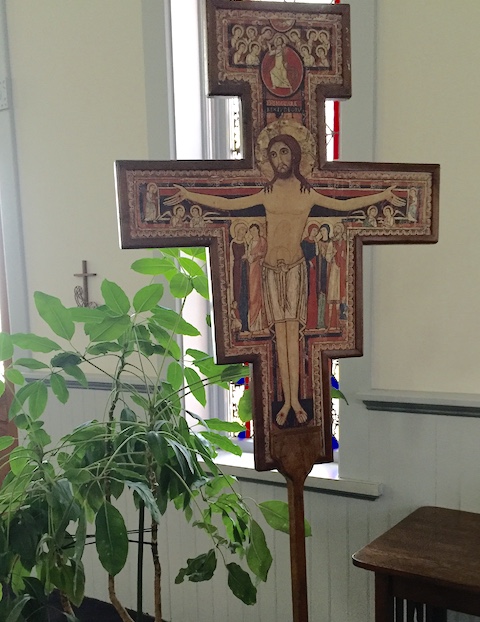Love and Apathy
Among the important feasts of our founders, St. Francis’s is one of the most recognizable. October 4th was the celebration of the life and legacy of St. Francis of Assisi. One of the most meaningful aspects of this is the Transitus (the vigil on October 3rd), which commemorates the move from life to eternal life. As St. Francis anticipated his own transition from life to eternal life, he added to his famous Canticle of the Creatures. In the style of the rest of the Canticle, he addresses death as Sister Bodily Death. St. Francis lived in such a way that he was able to embrace death and eternal life. Most of us naturally have a fear of death, a fear of that unknown. At the heart of the Transitus is the recognition that death is not the end, just simply the end of our bodily experience. As Teilhard de Chardin said, “we are not human beings having a spiritual experience; we are spiritual beings having a human experience.” St. Francis knew this. I think this is why he was able to so beautifully let go and return to God.
The sense of fear right now is palpable in our world, our communities, and our everyday life. It seems like the world is on the brink of thermonuclear war and we have devastating natural disasters that we struggle to respond to in an adequate way. The anxiety around immigration and DACA is at an all-time high.
So how do we respond to these seemingly insurmountable challenges?
There is, of course, the apathetic route. We won’t change anything, so why try? The opposite of love is not anger, it’s apathy. At the heart of the Gospel is love. We live the Gospel, and so there is always hope. Since God is love, if love never fails, it is humans that fail. We are only human, after all. God doesn’t ask for us to succeed. God asks for us to try. When we try and slowly, continuously work for systemic change, we might experience setbacks along the way. The authenticity with which the Gospel call is lived out is revealed in our attentiveness to the margins and recognizing the inherent dignity in each human being. When we are attentive to this, we experience life similarly to St. Francis, continuously freeing ourselves from attachments, even to the point of attachment to our body.
The encouragement I experience is the overwhelming amount of people willing to stand in solidarity for justice for those on the margins and those being pushed to the margins. The angry voice is loud, and we must remember it is the minority. Love will prevail. We might ask ourselves from time to time, does what I’m doing even matter? What effect does this really have? I want to assure you, it does matter even if we do not see immediate results. Let us live in such a way that when it’s time, we can fully embrace Sister Bodily Death as St. Francis did, knowing that it all mattered and was all for the good.
Sister Emily Brabham, OSF is a member of the Sisters of St. Francis, Clinton, Iowa and a member of University Ministry at Lewis University in Romeoville, Illinois. Her focus in her ministry is social justice formation. Sister Emily is passionate about active nonviolence, peacemaking, and care of creation that are at the core of her community's mission. You can follow her blog at sisteremily.com.


